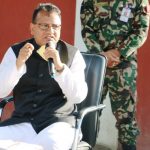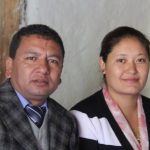3 August, MUGU: The Rara National Park Office here is worried after the largest lake in the country, the Rara Lake, started shrinking due to siltation, and has started looking for options to stop it.
The Rara Lake and the surrounding national park in Mugu district is a prime tourist destination known for its idyllic environment and mesmerizing natural beauty.
It is said that there are 34 brooks that open into the lake and of them ten streams are perennial. According to the park office, the remaining 24 brooks are seasonal in nature and bring with them a lot of sediment during the rainy season and depositing it in the lake.
Soil conservationists at the park office say that the surface of the lake is rising due to the deposition every year of sand, silt and other matters on the lake’s bottom. This has led to the expansion of the lake’s width and there are chances that the lake might burst if this process is not checked in time.
The lake covers an area of 10.65 square kilometers metres and it is 167 metres deep.
Chief of the Rara National Park Office, Bhogendra Rayamajhi said that that the rising surface level of the lake due to siltation is a matter of concern. He added that this problem is aggravated due to grazing by cattle on the bank of the lake, Nepal’s National News Agency reports.
Rayamajhi said that although the park office has adopted pro-tem measures like planting Nigalo plants around the numerous brooks that empty into the lake, they are far too inadequate compared to the growing siltation.
The Nigalo (the Himalayan bamboo) plants are said to work as filters stopping the sand and silt from reaching the lake. In this connection, the park office planted 350 Nigalo saplings around two streams.
The lake is also facing risk due to the rapid deforestation that is taking place towards the eastern coast of the lake in the Seri Malika Bufferzone Forest Area.
According to RSS, Conservationists have suggested carrying out massive afforestation around the buffer zone, establishing security posts in areas where there is much illegal felling and poaching and stopping cattle grazing in the park to protect the country’s largest lake.





